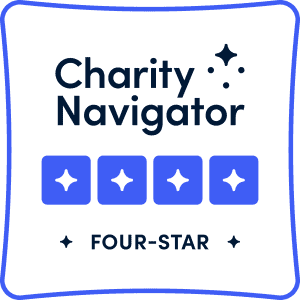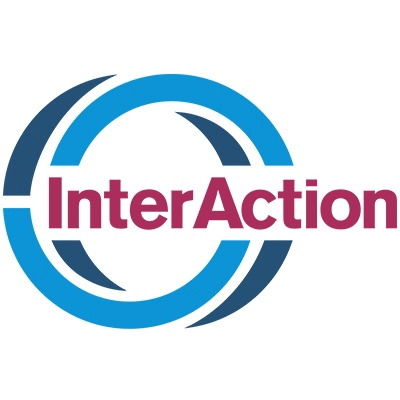Diversity, Equity, Inclusion and Belonging (DEIB) Policy
Diversity, Equity, Inclusion and Belonging (DEIB) Policy
Statement of Purpose:
The Hunger Project (THP) recognizes the importance of Diversity, Equity, Inclusion and Belonging (DEIB) in achieving our mission of creating positive change around the world. Our commitment to DEIB is intrinsically linked to our mission to facilitate individual and collective action to transform the systems of inequity that create hunger and cause it to persist. Our DEIB policy aims for our organization to reflect the diversity of the communities we serve and address systemic barriers to equity within our organization and in our programs. As we embrace these DEIB principles, we will strive to hold ourselves accountable, while establishing and understanding the diverse needs of the organization, as well as the communities we serve, and supporting a broader movement of positive change. By implementing and being carriers of our DEIB values, we cultivate a culture where all individuals feel valued, supported, and able to thrive within our unique perspectives and experiences. Through our DEIB policy, we commit to foster collaboration, innovation, and promote access to opportunities and resources. Our goal is to empower everyone to take part in cultivating a just and sustainable future where no one is left behind.
1. Definitions:
Diversity: Diversity refers to the differences and unique characteristics among people, including but not limited to their race, ethnicity, gender, sexual orientation, intersex status, age, religion, ability, and socio-economic status. It recognizes that everyone is different and values those differences as a strength.
Equity: Equity is about ensuring that everyone has equal access to opportunities and resources, regardless of their background or circumstances. It involves identifying and addressing the systemic and structural barriers that prevent some groups from accessing these opportunities and resources.
Inclusion: Inclusion refers to creating a culture where everyone is included, visible, heard, valued, respected, and supported. It involves actively working to recognize, consider and appreciate everyone’s contributions.
Belonging: Belonging refers to the feeling of being included, valued, and accepted in a community or group. It involves creating a culture where everyone feels that they have a place and that their contributions are valued, regardless of their background or identity.
2. Statement of Commitment:
The Hunger Project is deeply committed to promoting DEIB in all aspects of our work. We embrace this commitment in our relationships with board members, investors, staff, volunteers, vendors, and most importantly, our community partners. By proactively integrating these principles, we create an environment that champions unique voices and perspectives of all stakeholders, driving empathy, collaboration, innovation and lasting positive impact in our shared mission to end hunger and poverty.
3. Guidelines Development:
The DEIB policy will be reviewed and updated as needed at least every three years, taking into account feedback from our board, investors, staff, volunteers, interns, vendors, and the communities we serve, as well as best practices that align with the societal climate, new legal and grant requirements, and current global events.
4. Recruitment and Hiring:
The Hunger Project will support recruitment and hiring processes that are inclusive and non-discriminatory, and that candidates come from diverse backgrounds with the assurance that we encourage them to apply.
5. Workplace Culture:
The Hunger Project will strive to create a positive and inclusive workplace culture, where everyone feels included, valued, supported and that they belong on the team. This will include providing training and resources for all staff, as well as reviewing and addressing any incidents of discrimination or bias per our Code of Conduct; Safeguarding, Anti Trafficking and Child Protection Policy; and Whistleblower Protection Policy.
6. Programming:
The Hunger Project will strive to deliver, to the best of its ability and in the absence of undue hardship, accessible and inclusive programs to all individuals, regardless of race, ethnicity, national origin, gender, sexual orientation, age, religion, ability, and socio-economic status.
7. Communication:
The Hunger Project will strive to communicate in an inclusive manner, using language that is respectful and free from bias, as well as easy to understand for non-native English speakers. We will do our utmost to communicate in the countries’ main or official language languages as much as possible . We will develop, as often as possible, materials that are accessible to individuals with disabilities.
8. Evaluation and Monitoring:
At least every three years, The Hunger Project will evaluate and monitor our DEIB efforts, using feedback from stakeholders, staff, volunteers, interns, vendors, and the communities we serve to identify the areas that we should improve.
9. Consequence Management:
The Hunger Project will follow the Whistleblower Protection and Safeguarding, Anti-Trafficking and Child Protection Policies for addressing incidents of discrimination or bias, and consequences for those who violate this DEIB policy.
10. Ongoing Education and Training:
The Hunger Project will provide annual education and training, as available, for all staff, volunteers, and partners, to help promote a DEIB culture.
By following this policy, The Hunger Project can work towards creating a more inclusive and equitable world for all individuals.
Make change happen. Invest in people.
Mailing address
The Hunger Project
110 West 30th Street, 6th Floor
New York, NY 10001
Get connected
Join the conversation on social, and stay connected with the latest from our partners around the world.
Stay informed
Subscribe to our newsletter to receive updates of latest news and events.
© The Hunger Project | Website by The Good Alliance





